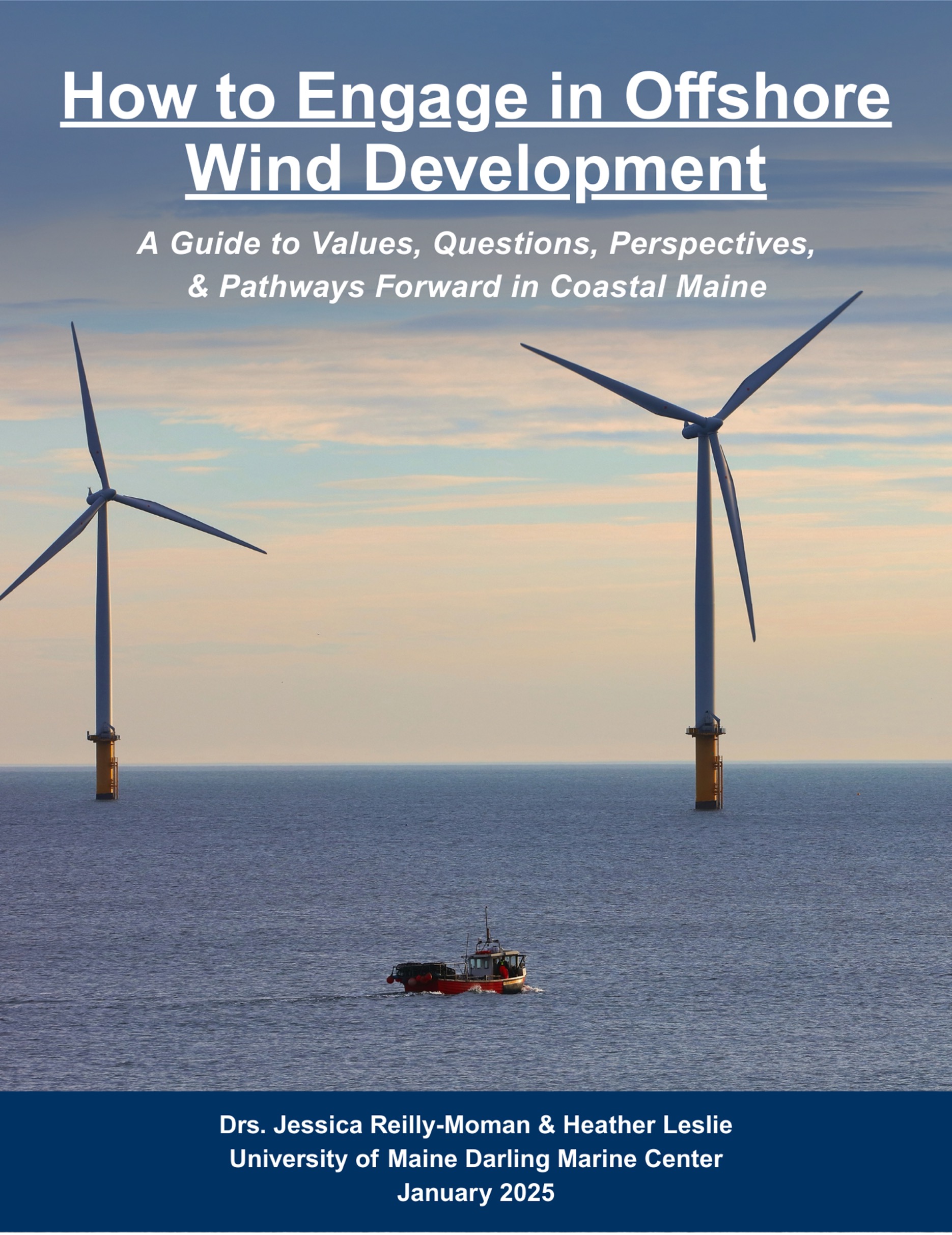
Engaging in offshore wind development
We are delighted to share How to Engage in Offshore Wind Development: A Guide to Values, Questions, Perspectives, and Pathways Forward in Coastal Maine, with you.
Download the Guide as a word document, or as a PDF.
This guide is designed to support many different people – community members, developers, government agencies and nonprofit organizations – as we navigate ongoing discussions and decisions related to coastal and ocean development.
While we anticipate that this guide will be relevant to people facing many different types of development challenges and opportunities, here we focus on the development of offshore wind farms in the Gulf of Maine. Ocean renewable energy presents new opportunities and challenges for state and federal governments, tribal nations, and existing ocean users. States plan to use floating offshore wind to meet renewable energy goals and supply needed power to an increasingly electrified nation. Yet the impacts of developing two million acres in one of the most productive marine environments in North America – in which fishing, recreation, and other activities benefit millions of residents and visitors – remain relatively unknown.
We use the idea of “place-technology fit,” or the degree to which a project suits a place, to document and illuminate the values, perspectives, and critical questions held by rights holders and stakeholders. Based on interviews with 42 people, we identify indicators of place-technology fit. The indicators recognize key aspects of place, including living memory, community cohesion, pressing needs, leadership, a community’s broader vision for itself and the future, and an understanding of what makes sense for rural electricity infrastructure.
Maine is a state that has traditionally relied on shared values and trusting relationships to navigate environmental, economic, and social challenges and opportunities. This guide highlights how these values—and the trust built from understanding them—can support community adaptation and thriving in the face of both socioeconomic and environmental change.
We look forward to your feedback on this guide, and hope that it is useful! Please contact Dr. Jessica Reilly-Moman at jessica.reillymoman@maine.edu or Dr. Heather Leslie at heather.leslie@maine.edu for more information.
Please reference this guide as: Reilly-Moman, J. and H. Leslie. 2025. How to Engage in Offshore Wind Development: A Guide to Values, Questions, Perspectives, and Pathways Forward in Coastal Maine. Walpole, ME: University of Maine Darling Marine Center. 53 pp. Available at https://umaine.edu/leslie-lab/2025/05/25/engaging-in-offshore-wind-development/
This project was supported by a partnership among the Northeast Sea Grant Consortium, the U.S. Department of Energy’s Wind Energy Technologies Office and Water Power Technologies Office, and NOAA’s Northeast Fisheries Science Center, to advance social science and technology research for the coexistence of offshore energy with Northeast fishing and coastal communities (NOAA award NA22OAR4170129-T1-01 to HL and JRM).
